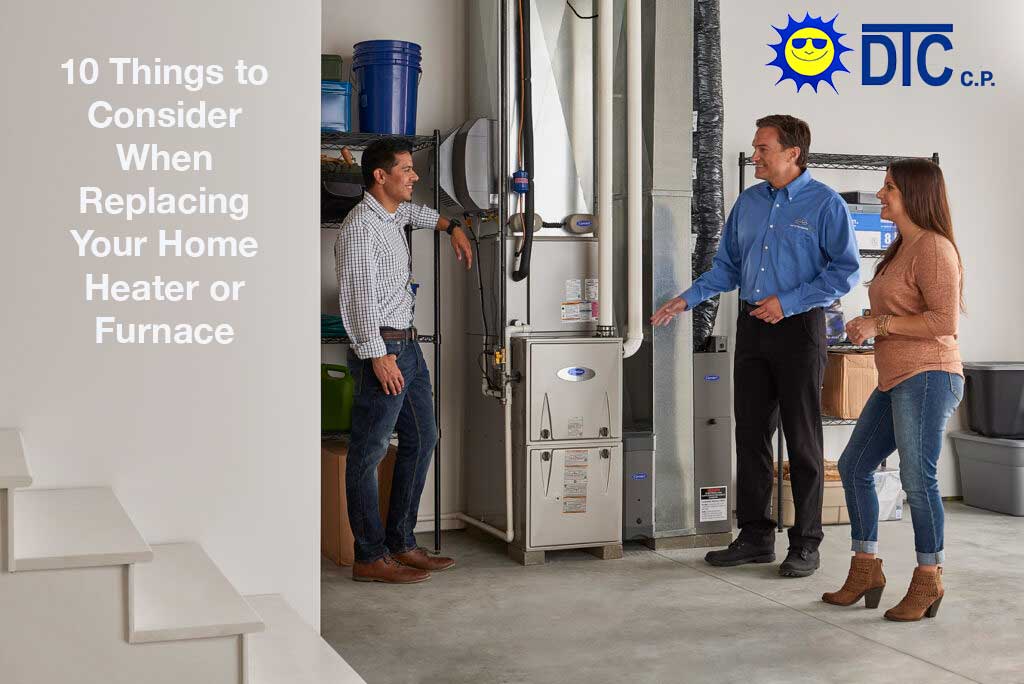
Replacing your heater or furnace is a significant home improvement decision, not only because of the investment involved but also due to its long-term implications on your home’s comfort and energy efficiency. Before you make a choice, there are several crucial factors to consider, ensuring that your new system meets your needs effectively and efficiently.
1. Determine the Right Type of Heating System
The first step in replacing your heater or furnace is to decide on the type of heating system that suits your home. Common options include forced air furnaces, boilers, heat pumps, and radiant heating systems. Each type has its own advantages and limitations in terms of efficiency, cost, and suitability for your climate and home structure.
2. Size Matters
One of the most critical aspects of choosing a new heater or furnace is sizing. A system that’s too large will cycle on and off frequently, leading to inefficiency and increased wear. Conversely, a too-small system will struggle to heat your home adequately. Professional HVAC contractors can perform a load calculation to determine the right size based on your home’s size, layout, insulation, and other factors.
3. Energy Efficiency
Energy efficiency is a key consideration, as it affects both your carbon footprint and your utility bills. Look for systems with a high Annual Fuel Utilization Efficiency (AFUE) rating for furnaces or a high Seasonal Energy Efficiency Ratio (SEER) for heat pumps. Remember, a higher efficiency rating might mean a higher upfront cost but can lead to significant savings over the system’s lifespan.
4. Consider the Fuel Type
The type of fuel your heater or furnace uses is another vital factor. Options include natural gas, electricity, oil, or propane. Your choice will depend on the availability and cost of fuel in your area, as well as your personal preferences and environmental considerations.
5. Installation Quality is Crucial
Even the best heating system won’t perform effectively if it’s not installed correctly. Ensure that you hire a qualified and experienced HVAC professional to install your new system. Proper installation is crucial for optimal efficiency, performance, and longevity.
6. Future Maintenance and Repair Costs
Consider the maintenance requirements and potential repair costs of the heating system you choose. Some systems may have higher maintenance needs or more expensive parts. Factor in these ongoing costs when making your decision.
7. Smart Thermostat Compatibility
Modern heating systems often work best with smart thermostats, which can significantly enhance energy efficiency and user convenience. Check if your new system is compatible with smart thermostat technology, allowing you to control your home’s temperature remotely and optimize heating schedules.
8. Noise Level
Consider the noise level of the heating system. Some furnaces and heat pumps operate more quietly than others. If noise is a concern, look for systems that boast low decibel levels or have features designed to reduce operational noise.
9. Warranty and Service Contracts
A good warranty can provide peace of mind and protect your investment. Look for heating systems that come with a comprehensive warranty covering major components. Additionally, some companies offer service contracts for regular maintenance, which can be a wise investment.
10. Budget and Financing Options
Finally, consider your budget and any available financing options. While it’s tempting to choose the cheapest option, remember that investing in a more efficient and reliable system can save you money in the long run. Many companies offer financing plans, and there may also be government incentives or rebates for installing energy-efficient systems.
Conclusion
Replacing your heater or furnace is a significant decision that requires careful consideration of various factors. By taking into account the type of heating system, size, efficiency, fuel type, installation quality, maintenance costs, smart thermostat compatibility, noise level, warranty, and budget, you can make an informed choice that ensures comfort and efficiency for years to come. Always consult with a professional HVAC contractor to make the best decision for your specific home and needs.
